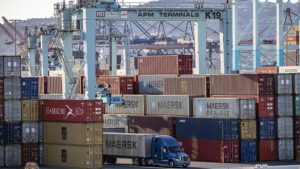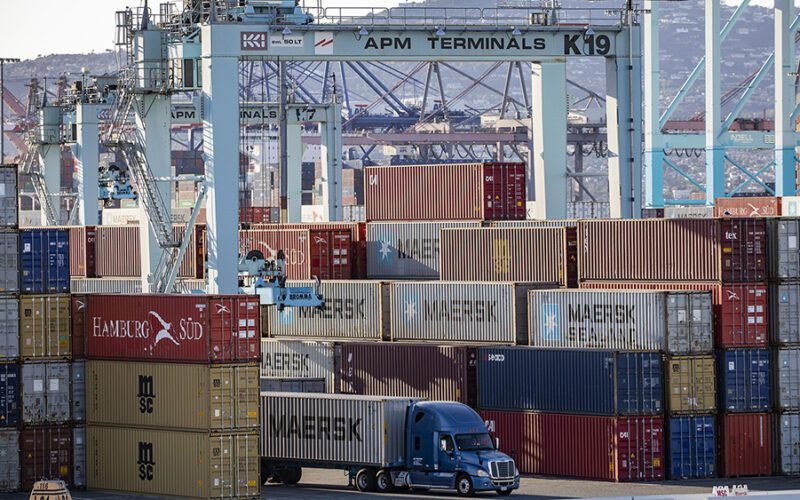
Cargo volumes in January dropped by double digits year over year at the Los Angeles and Long Beach seaports as consumer spending softens and more of the cargo share heads to the East and Gulf Coasts.
The Port of Los Angeles saw a 16% drop from January 2022, a record month for the port, moving 726,014 TEUs last month, the port announced Feb. 16. January imports were down 13% with 372,040 TEUs from the same time a year ago according to port data, while loaded exports were up 2.5% with 102,723 TEUs.
“We expect softer global trade throughout the first quarter, particularly compared to last year’s record-breaking start,” Port of Los Angeles Executive Director Gene Seroka said during a media briefing. “Many factories in Asia have had extended Lunar New Year closures, retailers continue to discount products to clear warehouses and inflation-led economic concerns remain top of mind for Americans.”
Meanwhile, the Port of Long Beach saw a 28.4% decrease in cargo last month when compared to the port’s record month of January 2022 with 573,772 TEUs, according to data released by the port Feb. 10. Long Beach also saw a 32.3% drop in imports to 263,394 TEUs and a 14.2% decline in exports to 105,623 TEUs year over year.
“We are taking aggressive steps to meet a new set of challenges for the new year,” Port of Long Beach Executive Director Mario Cordero said. “I remain optimistic that we will recapture market share and develop projects that will enhance our long-term growth, sustainable operations and the reliable movement of goods through the Port of Long Beach.”
Meanwhile, labor talks between the Pacific Maritime Association and the International Longshore & Warehouse Union continue to affect numbers. The ILWU-PMA contract that covers more than 15,000 dockworkers along 29 West Coast ports expired July 1.
While both parties continue to negotiate and cargo continues to move through L.A. and Long Beach, shippers chose to shift their business elsewhere to limit disruption.
“We all know we need this collective bargaining agreement in place quickly,” Seroka said. “Cargo owners have said that they want certainty even though the boxes are moving through L.A. without problems.”

